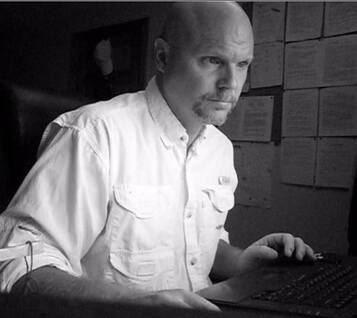 Rob Smales is the author of Echoes of Darkness, which garnered both a five-star Cemetery Dance Online review and a 2016 Pushcart nomination. With over two dozen short stories published, his story “Photo Finish” was also nominated for a Pushcart Prize and won the Preditors & Editors’ Readers Choice Award for Best Horror Short Story of 2012. His story “A Night at the Show” received honorable mention on Ellen Datlow’s list of the Best Horror of 2014, while “Death of the Boy” and “In Full Measure” made the same honorable mentions list for 2016. Most recently, he edited the dark humor anthology A Sharp Stick in the Eye (and other funny stories) for Books & Boos Press, and released the coming of age horror novella Friends in High Places with Bloodshot Books. When did you first begin writing stories? August 9, 2010. I know, because I still have the file. I wrote a single scene, just to see what it would be like. I eventually expanded that scene into a short story, a—if you can believe this—romantic comedy that no one will ever, ever see. But it did all start with a scene about a young man picking up a girl for a date, written just for myself, back in August of 2010. On your website, you state that you write character-driven dark fiction. Would you elaborate on that? Sure! I’m a pantser—or discovery writer if you’re feeling fancy—which basically means that when I sit down to write, almost nothing about the story’s set in stone. I have a starting point and a proposed ending, and I just start writing my way there. Along the way I meet my characters, become acquainted, and see them in action. Just like you get to know the people around you by observing what they say and do, I do the same with the people in my head. And just like it strikes you as odd if someone you know does something out of character—say your mom started snarfing down a Skippy on whole wheat sandwich, when you know she has a peanut allergy—it strikes me as odd if these new friends of mine start doing things that are out of character for them. If it strikes me as odd, it’ll strike my readers as odd, and that will give that temporary suspension of disbelief thing we fiction writers rely so heavily on a serious poke, and pull the readers out of the story. Take the mother in the above example: if someone told you she was eating that peanut butter sandwich, and you knew about her nut allergy, your first reaction is to say “I don’t believe it!” That’s the kind of reaction I’m trying to avoid. If it were her brother, however—and we all know he has a serious love for Skippy—it wouldn’t raise any eyebrows. What if someone had a gun to the brother’s head and told her he’d die if she didn’t eat that sandwich. Would she eat it then? Of course! That’s the way I write my stories. Along the way to the intended destination, everything that happens has to fit the characters involved. If none of the characters would do a thing that needs to happen in my story, I either have to change the circumstances so they would (the gun to his head above), or change the story itself to make it fit the characters. The story becomes driven by the in-character actions of those characters. Sometimes that means the ending can even change, a new one rising up propelled by the characters themselves. How did you get the idea for "Do I Fat?" I’m a mailman by day, and I have a lot of customers. I used to have a woman who received registered packages with stunning regularity, and whenever she did would give me a packet of cookies while signing the receipt. Eventually I told the cookie lady, “Please, you don’t have to do that. I’m going to get fat.” The cookie lady is an elderly emigrant from the former Soviet Union, and though her English is about a billion times better than my Serbo-Croatian, she looked up at me and said, in an accent worthy of Mr. Chekov, the original Star Trek helmsman, “But you walk all day. You walk, you sweat. You sweat, you lose weight. I work in bakery. Hard work. I sweat.” She raised spindly arms to showcase her spindlier body. “Do I fat?” I had to admit that she did not. But her little speech stuck with me—I love accents, and might easily listen to her tell stories for hours—and I’d recently read something that had reminded me of Baba Yaga, the witch of Russian folklore who appears in so many tales, though is best known around these parts as the child-munching cannibal in Hansel and Gretel. I started wondering what it would be like if Baba Yaga had survived to the modern age. Would she fit in? Would she still be up to her old kid-eating tricks? Would she, in fact, fat? Now we know. As a side note, a couple of months after having that little conversation, shortly after I’d written my first draft of “Do I Fat?”, the cookie lady took that day’s receipt into her apartment to sign and was gone for longer than usual. When she returned, she handed me the signed slip . . . and an apple. Apparently, I had been right all along, and I do fat. Do you have an essential book on the craft of writing that you would recommend to others? The only book on writing I’ve read is On Writing, by Stephen King. I read it because I love King’s work, and his style, and also because it was entertaining as hell, but I wouldn’t call it essential. Much of what he actually says about writing is more general than specific, more guidelines than rules—which might be a result of his basic belief that writing can be learned, but it can’t be taught. People come at this writing thing from so many different angles, no one book will work for everyone, and he’s pretty upfront about thinking that. I believe that as well, so to my way of thinking no book is essential. If you don’t like King or his style of storytelling, then it’s definitely not the book for you. If you do like King, then read it for fun, but don’t go into it assuming it will make you a better writer—though it may help. So, essential? No. Recommend? Sure, if you like him, pick up a copy of On Writing, because:
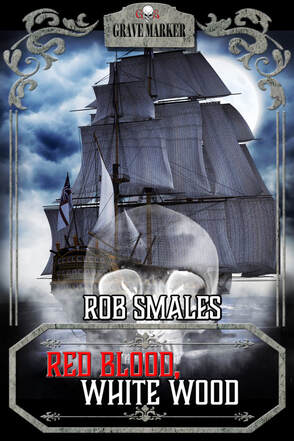 Who is your favorite author and what really strikes you about their work? I’ve mentioned loving King's work, but my favorite book of all time is A Prayer for Owen Meany, by John Irving, and I’ll tell you why. It’s the story of someone’s life—Owen Meany’s, of course—and is written that way, with lots of scenes and little stories that don’t really seem to have a goal, or even anything in common other than their having to do with the title character. That’s how we live: some stuff happened yesterday that has nothing to do with some of the stuff that’s happening today, and all of that really has nothing to do with some of the things that will happen tomorrow, other than that they’re part of our ongoing lives. Irving managed to write all these disparate parts in such a way that they’re all interesting, all fun, and you never sit there wondering Jesus Christ, where the hell’s he going with all this? Then you get to the end of the book, and all those loose threads he’s left lying all through the story, he starts pulling them tighter. He tugs on this scene, then that one, and your perception of them begins to shift—and then, like one of those optical illusion puzzles where if you look at a pattern just right it resolves into a picture, and instead of seeing just a random bunch of colored dots you’re suddenly looking at the face of Jesus, or Hendrix, or John Lennon, every scene that’s come before that used to seem unconnected sort of lines up and falls into place in your mind, and you see that everything--everything—that’s come before was actually all aimed toward this exact point in Owen’s story. You draw in a deep breath of wonder, and it comes out through rounded lips in a sigh that sounds suspiciously like “whoa . . .” I want to do that. Someday, I want to do that. Who is your greatest cheerleader? I have a few cheerleaders, each great in their own way, and it would be insulting and unfair to choose one above the rest. How’s that for a political answer? What's next for you? The next thing I have coming out is a small standalone not-quite-a-novella, the next installment in Grinning Skull Press's Grave Marker series, Red Blood, White Wood. This little pirate story is a tale of murder, mist, and magic, and will be available in the Kindle store on June 27 for just 99 cents.
0 Comments
You had us hooked with the notion of a 'Skunknado'. but the heroes of the tale really made the story. What inspired you to create them? When I was brainstorming for Strangely Funny VI, a coworker saw a skunk in the parking lot and thought it was a cat. When we got closer, we realized it wasn’t a cat, and we all laughed. I decided then that there is just something innately funny about skunks, because when they attack, you aren’t really injured, you just stink (which is somehow worse than being bitten), and that there needed to be at least one skunk in my next Strangely Funny submission. I’d watched a few disaster movies over the preceding month or so, including classics like Twister, and I liked the idea of writing a parody of disaster films. But with skunks. I’d never seen any of the Sharknado films, but I felt that they were now the industry standard for disaster movie parodies. I watched one, it was bad. Really bad. Really, really, gloriously bad. I wanted to write a parody of a parody, so it had to ratchet up the insanity exponentially. If Sharknado stretched the suspension of disbelief to the breaking point, my story would have to tear straight through it. Disaster movies have their own tropes, and their own highly specialized characters who are uniquely capable of coping with the extreme situations they find themselves in. For instance, in Twister you have Bill Paxton and Helen Hunt’s characters, seasoned storm chasers who work at the fringe of acceptable science. At least one character in a disaster movie has to be the lone-wolf outsider who correctly predicted the disaster was coming, but was ignored, or worse, mocked. Think of Jeff Goldblum’s character in Jurassic Park (which is both a disaster movie and a horror movie!) when he says “ ...your scientists were so preoccupied with whether or not they could that they didn't stop to think if they should” (which I quote in "Skunknado"). Then, of course, you need a group of otherwise capable characters to be put in a situation from which they need to be saved. One of the defining characteristics of a disaster film is that somebody, usually several somebodies, must be saved by the hero. It is this heroic salvation that drives the drama in the story. So, I needed a disaster. I took the insanity of Sharknado, and made it yet more insane by replacing the sharks with skunks. But that wasn’t bad enough, so I made the tornado the biggest one ever, sort of like the final tornado in Twister. Now, I needed someone to put into danger. I settled on a team of storm-chasing scientists who had a new laser-based technology that were studying tornadoes. I looked at the tropes and settled on the elderly academic who lets his mind wander, a uniquely rebellious graduate student who is fiercely intelligent, but has poor people skills, and an overweight guy who has memory lapses that require the other characters to explain what’s going on at inopportune moments. I threw them in a van, hurled a Skunknado at them and voila! You have a recipe for disaster.  Now, for the hero. Think of disaster movie heroes and you come up with a stereotype pretty quickly. Dwayne “The Rock” Johnson in San Andreas (or Rampage, Skyscraper, etc.), Bruce Willis in Armageddon, Thomas Jane in The Mist, and any film starring Arnold Schwarzenegger, all hyper-masculine and all hyper-capable heroes that few olympians could hope to match. I briefly considered making the hero of the story a female, but since "Skunknado" is a parody of the genre, I felt I needed a man to really sell the complete ridiculousness of the story. Enter Jack Dammett. Jack is a ruggedly handsome man, with four PhDs and a nice car. He’s the kind of guy that has theme music playing when he walks down the street, and has serious opinions about meteorology and the quality of his tan. I conceived of Jack as a kind of genetic hybrid of every action movie hero, combined with the brains of Steve Jobs and the laid back attitude of Matthew McConaughey. Everything he does is essentially effortless, yet undeniably cool. He got his name because I wanted to include the line, “Dammit, Dammett!” I really like the character, and I think Jack Dammett will return. Can you tell us a little about your writing process? I like to write in the evenings, or in the very early morning (a couple hours before the sun rises). I brew a pot of tea, usually a Darjeeling blend, and fire up some music. It needs to reflect the genre I’m writing. For instance, when I wrote my detective novel, Bigshots & Bulletholes, which is set in the 1940s, I listened to musicians like The Andrews Sisters and Bing Crosby, while some of my horror stories had Marilyn Manson or Skindred as the soundtrack. Honestly though, the playlist I use most is Bach’s Inventions, which I can listen to while writing almost anything. My stories are plot-driven, so at the start I decide the broad themes I want to explore, and then decide on a few must-have elements that must happen in the story, then I start to write. I don’t do any detailed plotting in advance of starting the story (which I’m told makes me a pantser), I prefer to let the story progress organically. Some writers consider this approach suboptimal because the plot can meander a bit if you’re not careful, but from what I’ve seen of the real world, meandering is an unavoidable consequence of living. I find great satisfaction when a plot unfolds in a story without my needing to bludgeon it to fit within a preconceived plot framework. It doesn’t always happen, but when it does, it’s narrative magic. If you could ask your readers one question, what would it be? What specific type of novel is an automatic “must buy” for you? Is there a new author or book out there that you think we should be reading and why? I just discovered Jo Nesbø not long ago, and I’m working my way through his backlist now. He’s not necessarily a “new” writer, but his work is new to me. Last year I did the same thing with Henning Mankell’s work. The specific genre that both authors fall into is Scandinavian noir, which is again, not new, but new to me. Give it a try, you won’t be disappointed. What is your current project? I’m writing another 1940s detective novel, a sequel to Bigshots & Bulletholes, featuring my female private eye, Kissy Lisbon. My progress has been slow for a couple of months because I’m still trying to adapt to my new work schedule at my day job (I work for Uncle Sam, but not in a bad way). I’ve spent the last fifteen years happily working third shift, but now I’m working seconds, and I’m having trouble sleeping during the night. Insomnia is not conducive to writing. I just wrote a script for the PLB Comics Halloween Special due out later this year. It’s an anthology title, my story will be one of several. My brother is doing the sequential art for my part of the book. I also have several short stories in various states of completeness, ranging from barebones ideas, to final polishing.
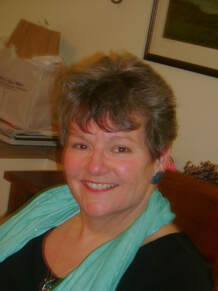 Beverly Alice Black is an immigration attorney in Philadelphia, Pennsylvania during the day and a fiction writer at night. Her short stories have been published by The Saturday Evening Post, Disturbed Digest and Enchanted Conversation. Follow her on Facebook at Attybeverlyblack and on Twitter @AuthorBevBlack. When did you know you wanted to become a writer? I want to be a writer? I thought it was just something I had to do. But seriously, as like most writers, I've written since childhood, created characters and backstories. But I really started writing when my children were little and I wrote for them. Can you tell us a little about your writing process? I start with a character. I get to know that character, create a very detailed backstory. From there I create the story, focusing on the most important day in that person's life. I try to keep the other characters to a minimum. Where did the inspiration for "Angel in Hell's Kitchen" come from? That's an easy one. I went to Mexico at 18 and two years later spent my junior year abroad in Costa Rica. When I was growing up, where I was growing up, an attractive female was a blonde with long legs, big boobs and no butt. I was just the opposite: dark haired, short and with a big butt.. When I went to Latin America the men not only showed attention to me but they actually thought I was pretty. Hot, even. I couldn't believe it. I thought they were just trying to trick me, but I soon realized that different cultures have different ideas about beauty and what makes a person attractive. This story is all about that. About a group accepting you for who you are and appreciating what you bring to the table. A lot of your writing is fact-based and serious. How different is it to write humor? Writing humor is hard! It is much easier to write a legal brief because you know what has to be written and in what order. Humor is subjective ... It's hard to hit the sweet spot between being illuminating and obnoxious. Your day job (immigration attorney) sounds pretty interesting. Tell us a little about it. Many people in my critique group think I should write about immigration and immigrants. I have written a few stories, but I live this every day. My clients' stories are tragic. Many of my clients from Central America have lost loved ones and still don't qualify for asylum because they don't fit into rubric we've created about who deserves asylum. I don't feel qualified to write as a Latina because i'm not, even though my daughters are and I've spent a lot of time in Latin America.. I think Latinos should tell their own stories. Is there a new author or book out there that you think we should be reading, and why? Definitely. John Schoffstall's book The Half Witch came out last year and has bee nominated for a ton of awards. He's probably the most imaginative writer I know. if you haven't' read his work, you should. His imagination is amazing.
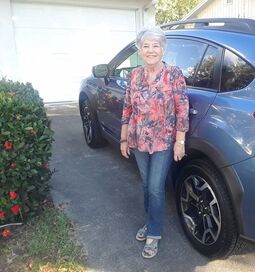 Kate Franklin lives in Sarasota Florida, where she teaches college English and Creative Writing. Kate enjoys reading, writing, gardening and driving her Subaru Cross Trek to the beach in her spare time. She loves to travel. Kate's travel adventures have included Europe, Argentina and Antarctica. Kate's mystery and science fiction short stories have been published on-line and in print anthologies. Her story, "Coin Karma," was a featured podcast from the Liars' League in London. The Tattooed Mermaid, her first novel, won a silver medal from the Florida Authors and Publishers Association. She is working on the sequel, Mermaid Park. Kate is a member of the writing groups Sisters in Crime and Saturday Sleuths. When did you know you wanted to become a writer? When I was about six, but it took me decades to actually write. Can you tell us a little about your writing process? Generally, I postpone writing as long as possible. Then when, as Julia Cameron says, it becomes "more painful to avoid writing than actually writing," I sit down and start something. Usually, it goes well once I face the blank screen. Where did the inspiration for "Ghost Heist" come from? I wish I knew. 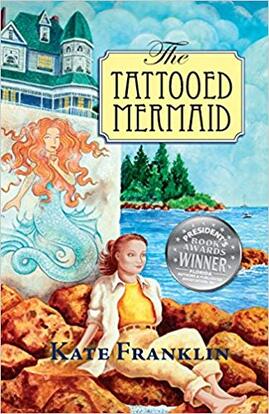 Tell us about The Tattooed Mermaid. The Tattooed mermaid is a murder mystery, but I see it primarily as a novel about relationships: A mother and daughter; two best friends estranged for years who come back together; a romantic relationship tested by life, some very dysfunctional relationships and a peek at a brand new relationship that will come in the next novel. Are you writing something at the moment? Tell us about it. I'm thinking about a couple of things I've started but I'm still in the postponing, or gestation period. The one I like best is what I hope will become a series about a witch who has inherited a number of familiars/entities from her mother. These entities are under spells to make them appear to be dogs. Each one has a special gift and will have his/her own novel. They all help solve mysteries. The series is called "The Witch's Daughter." You recently took a trip to Antarctica. What part did you enjoy the most? By far, bouncing around in the Zodiacs was the best. Getting up close and personal with huge icebergs, seals, whales, and penguins was fantastic. Zooming in and out of rock and ice caves was a total thrill. 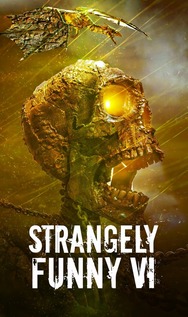 Thanks for visiting with us! Strangely Funny VI is now available in print and Kindle on Amazon, and is currently free on Kindle Unlimited. Be sure to read Kate's story, "Ghost Heist" for a good laugh. Bed and breakfasts have found a new way to attract customers: by advertising that they're haunted. And if they aren't really haunted, the ghosts better watch out. 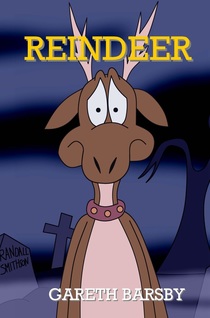 Gareth Barsby is a graduate of the University of Chester, where he studied Creative Writing and Journalism, but for most of his life, he has used writing to explore weird new worlds. He has a blog where he puts up his written work - myweirdwriting.wordpress.com – has self-published three books – The Werewolf Asylum, Barking Benjamin and Mr. Movie-Maker – and has submitted short stories to several publications. 1. Santa as an agent of Purgatory is a new wrinkle. How did you come up with the idea for Reindeer? Reindeer is meant as a love letter to my favourite Christmas stories from childhood, and it came about through thoughts on them. Like, I was thinking about the fact that the two most prominent Christmas stories are stories about Santa Claus and Christmas Carol spin-offs, despite the fact that the former is about candy canes and happy elves while the latter is about ghosts and graveyards, and I thought about if there was still a chance these Christmas characters could still be real, even though we now know it was our parents that were giving us our gifts. No-one’s found Santa at the North Pole but he could exist in another plane of reality. Santa doesn’t give people Christmas presents on this plane of reality, but what’s to say he doesn’t on another plane? So I thought Santa living in Purgatory would allow me to write a story where he could be real yet have people in the “real world” not believe in him, and would allow him, his elves, his reindeer and Toyland to better co-exist with the undead characters of A Christmas Carol. It would also mean putting familiar characters into a new world, which I thought would be a good challenge. 2. Can you tell us a little about your writing process? Did you sit down with cocoa and a candy cane, for example, to write Reindeer? Play holiday carols as you typed away? Well, replace “cocoa” with “a tonne of coffee” and “a candy cane” with “even more coffee”, and the second sentence is accurate. I did play some music to help immerse myself; not necessarily always holiday carols, but music that I felt evoked Purgatory so I could feel like I was there with Randall. The writing process was mostly just sitting myself down and typing out the story. 3. What did you enjoy most about writing this book? I enjoy writing fantasy stories because I find it fun creating a world and its “rules”, so what was probably the most fun thing about Reindeer was creating my own vision of the afterlife. That and creating a new adventure for my favourite Christmas characters. 4. If you had to choose, which writer would you consider a mentor and how is that reflected in your work? I’m not sure I can choose just one mentor. Stephen King’s On Writing was a big help for me and so was How Not To Write A Novel. I’ve been influenced by Bram Stoker and Mary Shelley and Lewis Carroll and Gregory Maguire, and I don’t know which has influenced me the most. Stephen King said to be a writer you have to write a lot and read a lot, and I think that in a way, everything I’ve read has had a little influence on my writing. 5. What is your current project and can you share a little of it with us? I have no major projects at the moment, but I do still write short stories and poems from time to time, and I, of course, put them up on my blog. 6. You're an author. What do you enjoy reading? I enjoy reading all sorts of things. I especially like horror, like Thomas Harris’ Hannibal books, and retellings of older stories (recently finished Christina Henry’s Alice). I also like reading poetry, especially humorous poems like those by Edward Lear. 7. What would you like most for Christmas? Socks. Columbkill Noonan has an M.S. in Biology, and teaches Anatomy and Physiology at a university in Maryland. An avid history buff, much of her writing, which could be best described as “supernatural historical horror”, combines historical events with elements of paranormal fantasy. Her first novel, Night Woods, is available as an e-book on Amazon.com. She is currently working on her second novel, which was inspired by a trip to Scotland, particularly by the grim castles and spooky underground alleys of Edinburgh. Which makes her story, "The Mislaid Heart", a real departure... “Use the Nubian embalmer, they said,” he muttered. “Nubian embalmers are cheaper, they said. You can’t afford a Greek embalmer, they said. Everybody’s using the Nubian ones anyway, they said. Stupid Nubian embalmers." 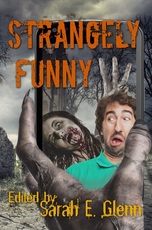 Now on Amazon. Now on Amazon. What would you like people to know about you? That I am terrified of ghosts. I sometimes scare myself when I am writing scary stories, so that is why I really enjoy writing about ghosts who are silly and funny. When did you begin writing? I wrote my first story when I was five. It was a about an epic journey taken by a dog who was lost on vacation. The dog took trains, crossed mountains, and sailed across the ocean in order to get home. My mom liked it. How did you get the idea for your story in Strangely Funny III? I just randomly became obsessed with Egyptian mythology and began researching it. Once I had done that, I had no choice but to write a story about it. Is there a genre you haven't written in, but would like to? I like historical fiction very much. I've been working on an historical fiction novel for a few years now, but it's coming along very, very slowly. What are you working on next? It's another humorous story about the Egyptian afterlife, but this time it'll be a novel. I'm already in love with the characters! What is your favorite writing snack food/drink? Gum. I chew gum like a madman when I write. I'm actually chewing it now while I write this email.
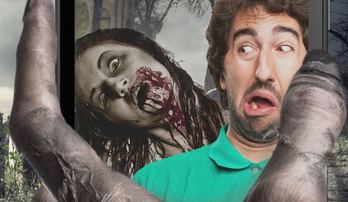 What would you like people to know about you? Well, I’m a Sagittarius. So I’m half human and half horse. Guess which half is which? When did you begin writing? I began writing in elementary school, where the nuns at St. Stephens inspired me to write such prose as "See Dick run" almost daily. It was actually during those days that I first remember enjoying literature. As I learned to read I immediately was drawn to books on monsters, ghosts, unexplained phenomenon and animals. I would read these books and then write my own versions of the stories. I would read these books and then write my own versions of the stories. They were terrible rip-offs of the originals but eventually they made me want to create my own stories that people would get excited for. How did you get the idea for your story in Strangely Funny III? I had written a list of story ideas for children that would never get published. For example: What to do When your Imaginary Friend Goes into Rehab, My First Prostitute and The Jungle Juice Book. But the one that I knew I could possibly get published (not for children) with a little finesse was, The Monster That Wouldn’t Come Out of the Closet. And with just a throw-away title, a story baby was born. Is there a genre you haven't written in, but would like to? Chick-lit. I love writing dialog and women talk a lot! Sorry, ladies we do; me included. It would be great just to let loose on each character. But knowing me, they’d end up at the mall and a huge creature would rise up from the pretzel dough at Aunt Anne’s and attack everyone. Which would bring me back to the horror genre anyway. So never mind. Who are your current favorite authors? What do you enjoy about them? I love reading Indie authors. They have such wonderful ideas and craft stories so much better than some of the well-known authors who write because they have to write, not because they choose to write. Independent authors write because they love to write and their ideas are fresh. What are you working on next? I'm working on a book with President Obama about his monster that he hides under the desk in the Oval Office. He doesn't know it yet. Damn Secret Service keeps yanking me out of the trees. What is your favorite writing snack food/drink? Air. Butter flavored air. Thank you for sharing your craziness with us!
You can read Ruschelle's story, "Quasi-Therapy" and other amusing tales in Strangely Funny III, now on Amazon.
I need to confess something here. I write fiction under a different name than the name I use on my nonfiction. I’ve been doing it for so long that I’ve forgotten what the original logic was, but I’m sure it made oodles of sense at the time. Admittedly, it has its advantages. It makes displaying my books easier, since I can I can separate them by name and give myself two shelves of work, and I can review anthologies that include works by my horror writing brother (not named Scooter) and say bad things about the book without looking like an even bigger ass for saying bad things about a book with my brother in it. Where it gets complicated is conventions. Do you sign your real name, or the byline on the story? I mean, if you’re asking me to sign, you know who I am, since my real name is on my pass. And if you ask how they want it signed, they assume I’m going to personalize it when all I really want to know is which name do you want me to use. And when they want one of your nonfiction titles and that anthology – well, you can just rock me to sleep tonight because I’ll still be stressing over that one.
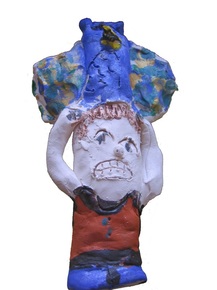 I am pleased to announce that Strangely Funny III is now on Kindle. It presents nineteen stories from talented authors, and I would like to introduce you to one of them. Nathan Cromwell is the author of "The Tortured Teen." Rather than being interviewed by us, Marla, one of the characters from “The Tortured Teen”, expressed her desire to talk with the author about the story. Marla: You don’t like me very much, do you? Cromwell: You’re a bit of a pain, but I’m sure you’ll grow out of it. Marla: You have me already dead in the very first paragraph! Cromwell: . . . Marla: (After a half-hour awkward silence) What’s up with the picture? Cromwell: That was a gift from my niece, Mikaela. It’s a statuette of me with a peacock on my head. Marla: Wh-- Cromwell: I don’t know. Marla: Okay. So, how did you come up with the story? Cromwell: I was sitting in a coffee shop trying to think of something interesting to write for this anthology. I had started watching a documentary on string theory the night before, and I had recently read Oscar Wilde’s The Ghost of Canterville, so I decided to mix an old-fashioned ghost with modern physics. 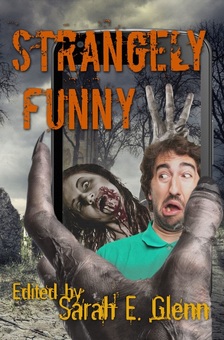 M: Do your stories just come to you? C: Sometimes I do write straight through, but mostly I jot down ideas until my muse takes a bathroom break. Then I’ll start arranging my notes into clumps and decide the best plan of attack. Once I’ve got the architecture, I start fleshing out and filling in gaps, and either throwing out or saving things that don’t fit. Marla: Some authors talk to their characters. Do you? Cromwell: I never have conversations with my characters. Marla: Speaking of your characters, how did you come to put me in Atlanta instead of somewhere more goth-friendly, like New Orleans? Cromwell: I used to live there, and I left about the time they were tearing down homes in the shabbier part to prepare for the Olympics. Since I wanted a ghost haunting a brand-new house, that came to mind. M: A lot of authors, myself included—did you know I write heart-rending poetry?—get inspired to write by reading a story and saying to themselves: “I can do better than that.” Do you feel proud that you will inspire so many future writers? C: I’m not some hack! I put a lot of effort and thought into my stories. M: You know, after all that work, it’s unbearably sad that no one will read or even remember this story fifty years after you’re dead. C: (As a pleased smile blossoms on Marla’s lips) That’s not—maybe this—you never kno—oh, shut up! M: And if by some miracle people are still reading it, you’ll be dead but I, the dead girl, will live on in your story. Isn’t that neat? C: (Inaudible). M: Thank you, Mr. Cromwell. I enjoyed our interview. More than you know. Nathan Cromwell is a living, breathing, swearing teleprompter for the human race, and he does some of his best work on public transport. A military brat, he is from no one place. He did hover in Indiana long enough to earn a BA in English which he has never used for any job ever unless you count this. He has worked in the retail, security, and fitness industries and has acquired all the concomitant bitterness they offer. That hard-won fruit he passes on to you in his stories.
Many of his stories are online, and you can find links to them at nathancromwell.wordpress.com.
How did you come up with the idea for "Alien Dust"?
I came up with the idea for the story as I was trying to figure out how a person would stop a vampire with modern technology. The Dustbuster (TM) just jumped into mind, and I laughed my head off. However, it wasn't that funny with humans; Buffy the Vampire Slayer, The Vampire Diaries, Supernatural have pretty much worn the shine off of the idea. But aliens! Who have never seen a vampire! Area 51 meets Dracula, it was too good! How do you handle the challenges to your writing time? You seem to live with a crowd of people and animals. Challenges to my writing time occurred while the kids were growing up. Now that they're adults, it's easier to find the time to myself. Do you see writing as an eventual career for you, or a sideline? I always wanted to be a writer as a career. But look around. Less than 100 people make a living off of writing, and I am nowhere near the quality to manage that. So I kept my day job. Do you have hobbies? If so, do they influence your writing? My hobbies are gardening, taking care of the critters, and walking. I fit anything else in as there is time (and energy). And yes, they always influence my writing. What is your next project? My next project is to finish one of the list of stories I have the kernel of an idea for (I have the list written, now I need to point my finger at whichever one draws my interest). I'm thinking dice would be a better way to decide which story is next. |
Welcome!
Mystery and Horror, LLC, is an indie press interested in what the name suggests. Contact us at: mysteryandhorrorllc@gmail.com
Archives
October 2023
Categories
All
|
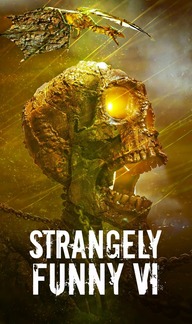
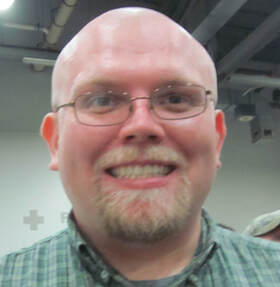
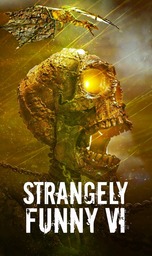
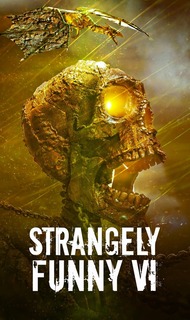
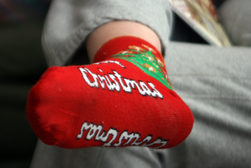
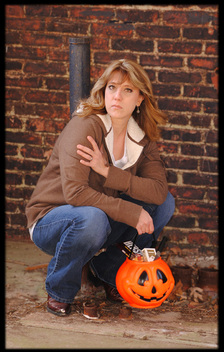
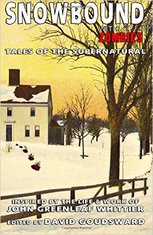
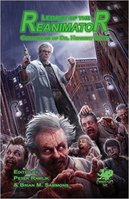
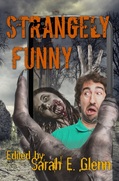
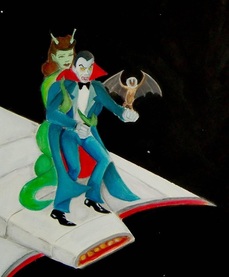
 RSS Feed
RSS Feed